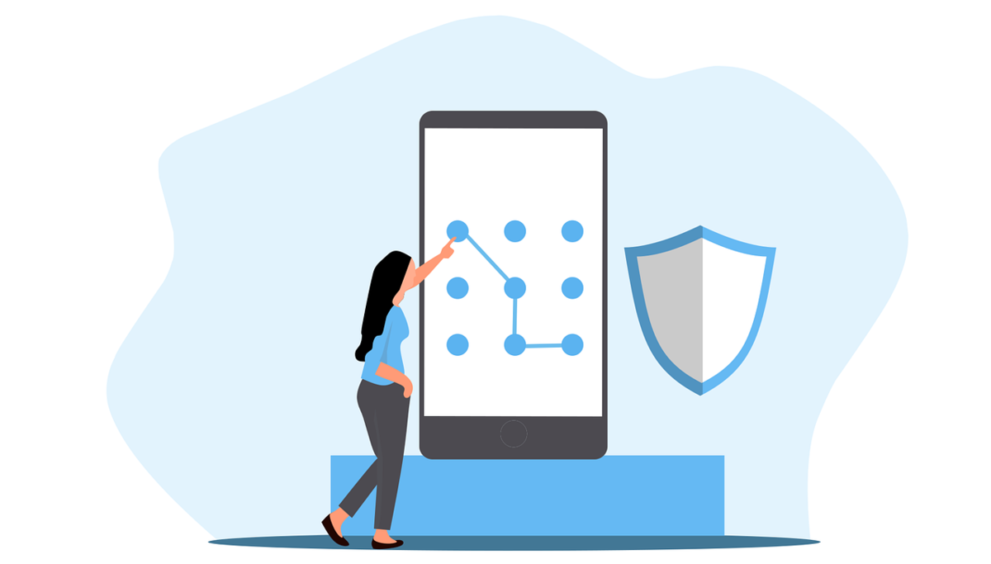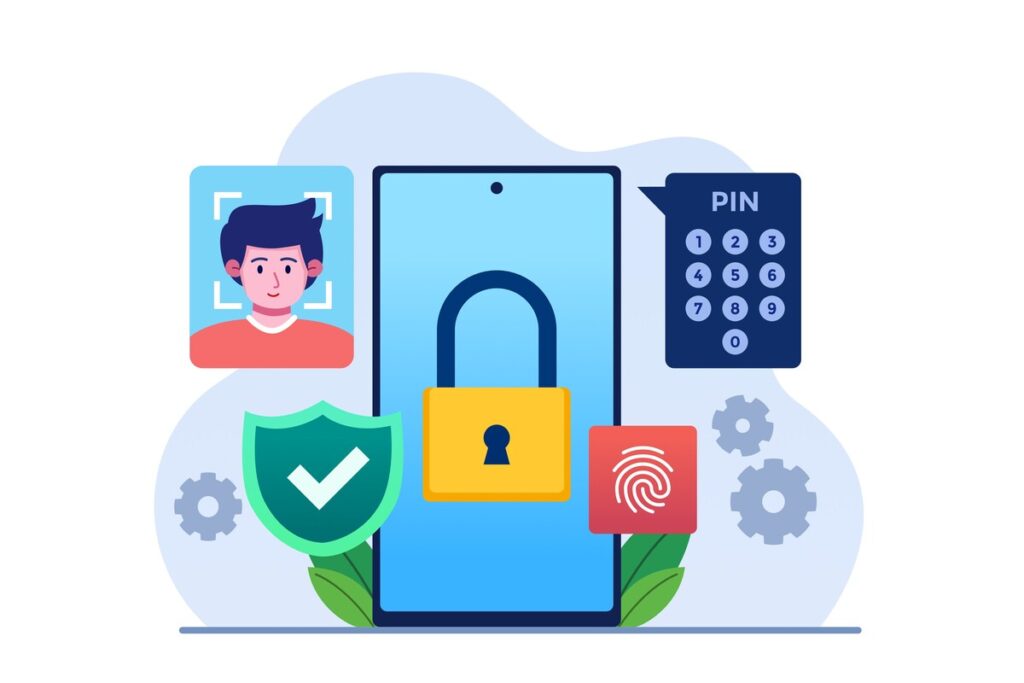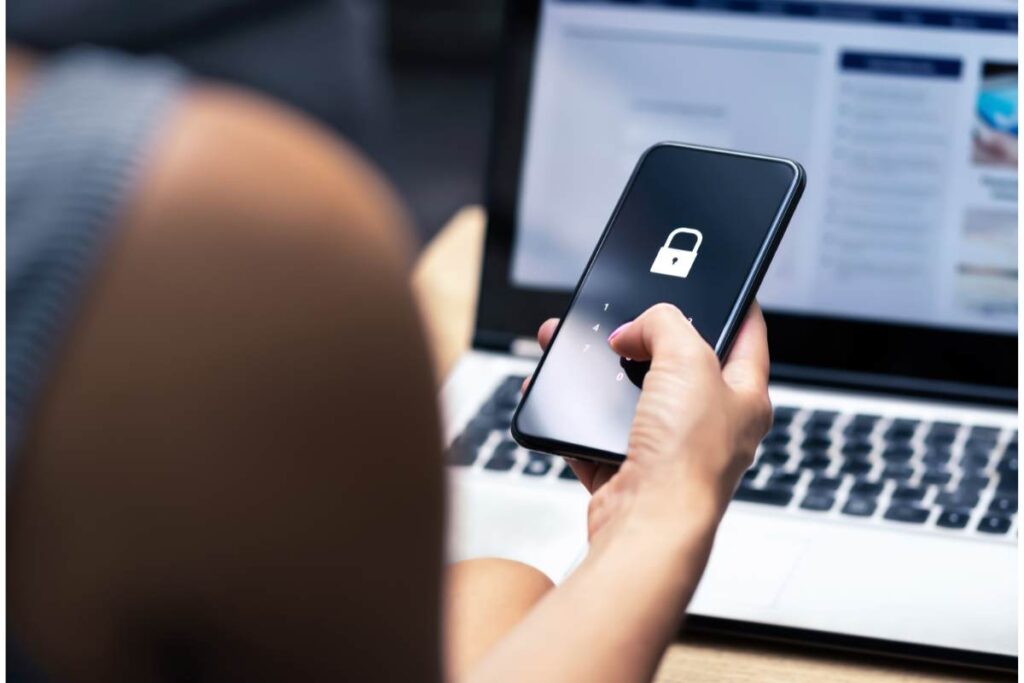Tips for Securing Mobile Devices: How to Protect Your Smartphone and Tablet

It should come as no surprise that mobile device security has become a hot concern, given the rising popularity of smartphones and tablets. These technologies come with a certain element of risk despite their abundance of capabilities and advantages.
Here are some pointers to keep your tablet and smartphone secure:
1. Always update your operating system and apps.
Keeping your operating system and applications up to date is one of the best methods to safeguard your mobile device. It’s critical to download and install security updates for products as soon as they become available because manufacturers frequently provide security upgrades for their goods. Additionally, a lot of apps frequently issue updates. You can help safeguard yourself against security flaws by keeping your apps up to date.
2. Make use of a safe lock screen.
Most mobile devices have a lock screen security feature, like a passcode or pattern lock. Utilizing these features is crucial for limiting unauthorized access to your device. Additionally, it would help if you refrained from employing passcodes that are simple to decipher, such as 0000 or 1234. Select a passcode instead that is at least six digits long and contains a combination of letters, numbers, and symbols.
3. Install software with caution.
You should be cautious about what you install on your mobile device, just as you would on a PC. Only download software from reputable websites like the device’s official app store. Before installing an app, make sure to read the reviews and ratings for it. It might help you determine whether the app is safe and what other users think.
4. Be careful when you click on links.
Be cautious when clicking links, even from someone you know. Links can be used by hackers to trick you into visiting dangerous websites or to infect your device with malware. You can use your mouse to hover over a link to see where it will lead you if you need clarification. Alternatively, you can examine the URL before clicking it by using a site like Bitly.
The Dangers of Breach of Mobile Device Security
Due to the growing popularity of mobile devices, there is an elevated danger of security breaches. Malicious people can access your device and its data in several ways. We’ll look at some of the dangers connected to mobile device security breaches in this blog post, along with some advice on how to stay safe.
Phishing attacks are one of the most typical methods to infiltrate mobile devices. Fraudsters often send emails or messages that appear to be from trustworthy sources to trick you into disclosing personal information or clicking on dangerous links. It is called phishing. While it can be difficult to spot these attacks, there are certain signs to be aware of.
- The sender’s address might not exactly match the recipient’s.
- There could be typos or grammatical mistakes in the communication.
- The message can include threatening or urgent language.
Do not open any attachments or links in suspicious messages, and do not reply with any personal information. Instead, contact the message’s purported sender directly to confirm it.
Unsecured apps are another way that mobile devices can be taken advantage of. You trust the program developer when you download it, believing it is safe and secure. Developers frequently need to adequately secure their apps, which can expose your device and data to risk. Ensure an app is reliable and that other users have identified no security vulnerabilities before downloading it.
Additionally, make sure to keep all of your apps and your mobile device updated. Updates from developers frequently contain security fixes for recently found vulnerabilities. You can better defend yourself from these assaults by updating your device and apps.
Using a password or passcode to lock your mobile device is one of the greatest ways to protect it. If your device is lost or stolen, this will prevent access by unauthorized parties. Use a strong password or passcode that is difficult to decipher.
You can assist in preventing security breaches on your mobile device by keeping in mind this advice.
How to Secure Your Mobile Devices
It’s crucial to keep our gadgets secure more than ever as our lives become increasingly digitized.
Three suggestions are provided below to keep your mobile devices safe and secure:
1. Set up two-factor authentication and use a secure password.
A strong password is the first defense against someone attempting to access your device or account. Use a special password, at least eight characters long and contains various letters, numbers, and symbols. Additionally, you ought to enable two-factor authentication. Requiring a code from your Phone each time you log in from a new device offers an extra degree of security.
2. Maintain software updates.
Running the most recent software is one of the greatest methods to keep your device secure. Updated software frequently comes with security features that can assist in shielding users from the most recent dangers. Go to Settings > General > Software Update on an iPhone to see if any upgrades are available. Go to Settings > About Phone> System Updates on an Android handset.
3. Take care when downloading and installing software.
Ensure you only download software from reputable sites like the App Store or Google Play. Before installing anything, be sure to read reviews and double-check the permissions. And be careful when opening attachments or clicking links in emails because these actions can be used to install malicious software.
You can assist in keeping your mobile devices safe and secure by paying attention to these suggestions.

Security for Mobile Devices: Why It’s Important
It’s critical to take all reasonable precautions to keep our mobile devices secure as they increasingly integrate into our daily lives.
Here are four crucial justifications for making your mobile device as secure as possible:
1. Sensitive data is frequently stored on mobile devices.
Our mobile devices frequently include sensitive information, from bank information to private images. This information could be misused to take advantage of us financially or personally if it ends up in the wrong hands. Making sure our mobile devices are as safe as possible is crucial in light of this.
2. Sensitive information can be accessed using mobile devices.
Our mobile devices can obtain sensitive information and store sensitive data. For instance, we use our mobile devices to access our email or check the amount of our bank accounts. Unauthorized parties may access this data if our mobile devices are not secure.
3. Using mobile devices to connect to open Wi-Fi networks is common.
We put our mobile devices at risk for security when we connect to open Wi-Fi networks. Unsecured public Wi-Fi networks could allow someone to intercept the information we send and receive. It might allow someone who shouldn’t have access to our private data to obtain it.
4. Losses or thefts of mobile devices are frequent.
Unfortunately, people frequently lose or steal their mobile devices. Our sensitive information may be accessible to someone who finds or steals our mobile device if it is not adequately secured.
Our mobile devices must be as secure as possible to safeguard our data. We may take several actions to increase the security of our mobile devices, including setting strong passwords, downloading security apps, and backing up our data. We can protect our information and our mobile devices by adopting these precautions.






